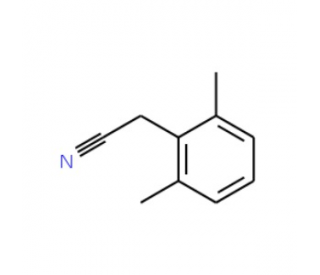详细说明
Species Reactivity
Mouse
Specificity
Detects mouse Thrombopoietin/Tpo in ELISAs and Western blots. In sandwich immunoassays, 0.65% cross-reactivity with NS0-derived recombinant human (rh) Tpo is observed. No significant cross-reactivity or interference with rhEPO, recombinant mouse (rm) G-CSF, rmGM-CSF, rmM-CSF, rmSCF, rmTpo R, or rmVEGF is observed.
Source
Monoclonal Rat IgG 2A Clone # 378120
Purification
Protein A or G purified from hybridoma culture supernatant
Immunogen
Mouse myeloma cell line NS0-derived recombinant mouse Thrombopoietin/Tpo
Ser22-Thr356 (predicted)
Accession # P40226Formulation
Lyophilized from a 0.2 μm filtered solution in PBS with Trehalose. *Small pack size (SP) is supplied as a 0.2 µm filtered solution in PBS.
Label
Unconjugated
Applications
Recommended
ConcentrationSample
Western Blot
1 µg/mL
Recombinant Mouse Thrombopoietin/Tpo (Catalog # )
Mouse Thrombopoietin/Tpo Sandwich Immunoassay
Reagent
ELISA Capture (Matched Antibody Pair)
2-8 µg/mL
Mouse Thrombopoietin/Tpo Antibody (Catalog # )
ELISA Detection (Matched Antibody Pair)
0.1-0.4 µg/mL
Mouse Thrombopoietin/Tpo Biotinylated Antibody (Catalog # )
ELISA Standard
Recombinant Mouse Thrombopoietin Protein (Catalog # )
Please Note: Optimal dilutions should be determined by each laboratory for each application. are available in the Technical Information section on our website.
Preparation and Storage
Reconstitution
Reconstitute at 0.5 mg/mL in sterile PBS.
Shipping
The product is shipped at ambient temperature. Upon receipt, store it immediately at the temperature recommended below. *Small pack size (SP) is shipped with polar packs. Upon receipt, store it immediately at -20 to -70 °C
Stability & Storage
Use a manual defrost freezer and avoid repeated freeze-thaw cycles.
12 months from date of receipt, -20 to -70 °C as supplied.
1 month, 2 to 8 °C under sterile conditions after reconstitution.
6 months, -20 to -70 °C under sterile conditions after reconstitution.
Background: Thrombopoietin/Tpo
Thrombopoietin (Tpo), is a key regulator of megakaryocytopoiesis and thrombopoiesis. It is principally produced in the liver and is bound and internalized by the receptor Tpo R/c-mpl. Defects in the Tpo-Tpo R signaling pathway are associated with a variety of platelet disorders (1‑3). The 356 amino acid (aa) mouse Tpo precursor is cleaved to yield the 335 aa mature protein. Mature mouse Tpo shares 71% and 81% aa sequence homology with human and rat Tpo, respectively. It is an 80‑85 kDa protein that consists of an N-terminal domain with homology to Erythropoietin (Epo) and a C‑terminal domain that contains multiple N-linked and O-linked glycosylation sites (4, 5). Tissue specific alternate splicing of mouse Tpo generates multiple isoforms with internal deletions, insertions, and/or C-terminal substitutions (6). Tpo promotes the differentiation, proliferation, and maturation of MK and their progenitors (4, 5, 7). Several other cytokines can promote these functions as well but only in cooperation with Tpo (8, 9). Notably, IL-3 independently induces MK development, although its effects are restricted to early in the MK lineage (8, 9). Tpo additionally promotes platelet production, aggregation, ECM adhesion, and activation (10‑13). It is cleaved by platelet‑derived thrombin following Arg191 within the C‑terminal domain and subsequently at other sites upon extended digestion (14). Full length Tpo and shorter forms circulate in the plasma (4, 5). The C‑terminal domain is not required for binding to Tpo R or inducing MK growth and differentiation (5). Aside from its hematopoietic effects, Tpo is expressed in the brain where it promotes the apoptosis of hypoxia-sensitized neurons and inhibits neuronal differentiation by blocking NGF-induced signaling (15, 16).
References:
Deutsch, V.R. and A. Tomer (2006)J. Haematol. 134:453.
Kaushansky, K. (2005) J. Clin. Invest. 115:3339.
Li, J. et al. (1999)J. Haematol. 106:345.
Bartley, T.D. et al. (1994) Cell 77:1117.
de Sauvage, F.J. et al. (1994) Nature 369:533.
Marcucci, R. and M. Romano (2008) Biochim. Biophys. Acta 1782:427.
Kaushansky, K. et al. (1994) Nature 369:568.
Kaushansky, K. et al. (1995) Proc. Natl. Acad. Sci. 92:3234.
Broudy, V.C. et al. (1995) Blood 85:1719.
Lok, S.I. et al. (1994) Nature 369:565.
Chen, J. et al. (1995) Blood 86:4054.
Oda, A. et al. (1996) Blood 87:4664.
Van Os, E. et al. (2003) Br. J. Haematol. 121:482.
Kato, T. et al. (1997) Proc. Natl. Acad. Sci. 94:4669.
Ehrenreich, H. et al. (2005) Proc. Natl. Acad. Sci. 102:862.
Samoylenko, A. et al. (2008) Cell. Signal. 20:154.
Entrez Gene IDs:
7066 (Human); 21832 (Mouse); 81811 (Rat)
Alternate Names:
Megakaryocyte colony-stimulating factor; Megakaryocyte growth and development factor; megakaryocyte stimulating factor; MGDF; MGDFC-mpl ligand; MK-CSF; ML; MPL ligand; MPLLGMGC163194; Myeloproliferative leukemia virus oncogene ligand; THPO; thrombopoietin nirs variant 1; Thrombopoietin; Tpo; TPOMKCSF











 粤公网安备44196802000105号
粤公网安备44196802000105号